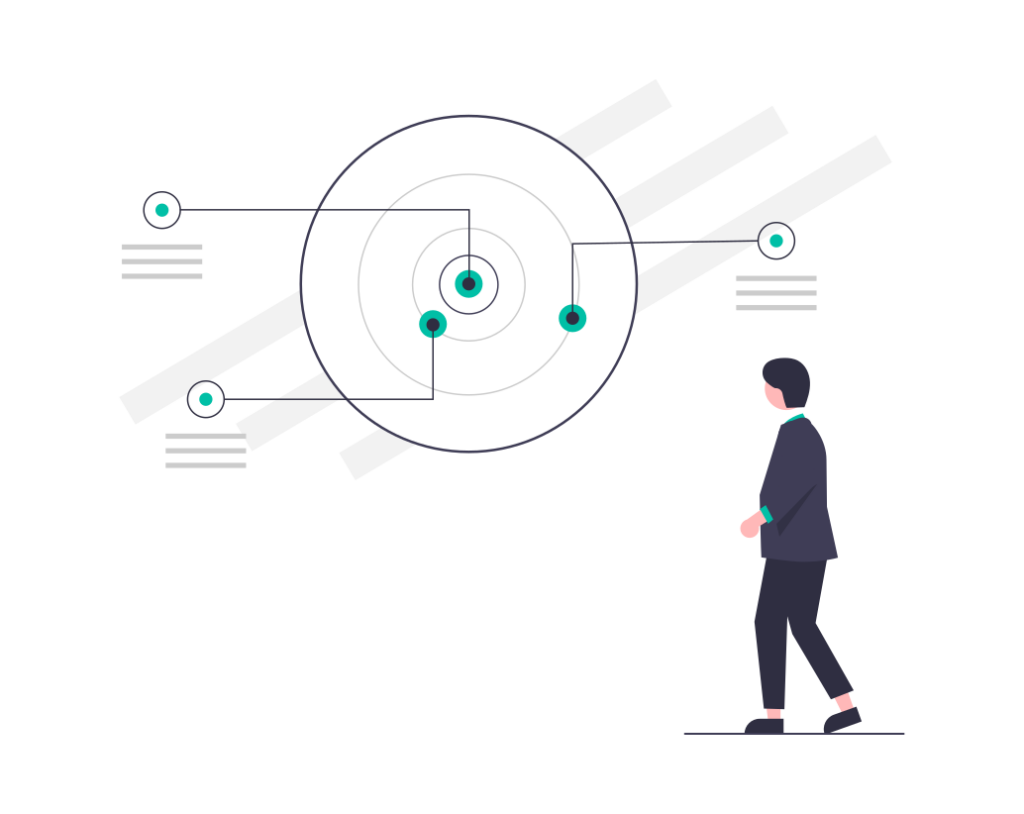Growth Teams: A Need To Know

Building a growth team can seem like an intimidating process. Growth is a broad discipline, and it’s a relatively new one. It’s a discipline that is still learning how to organise itself and is still assembling a base of strong received ‘academic’ wisdom that anyone can apply to their organisation. Most of the information online discussing growth methods comes from blogs, where you can’t be sure of the provenance of the information or experience of the writer. It comes down to the famous quote from Abraham Lincoln in 1854: ‘Don’t believe everything you read on the internet’.
We’ve used our own on-the-ground experience, combined with the work of some of the biggest thinkers in growth, to put together this article to help. Let’s get stuck in.
What is a growth team?
In short: growth teams use a scientific approach to identify ways to improve growth throughout the organisation. They work on any part of the marketing and sales funnel, or in product development, and use rigorous, fast-paced testing to improve on key agreed metrics. We have written a couple more articles on this topic already – check out what is growth marketing and growth hacking explained.
This means that they can be assigned to deal with a variety of problems. It may be that the growth team is focused on top of funnel user acquisition, which would more closely align their function with marketing. Or it may be that their goal is to reduce churn, which could mean they are more closely aligned with product development and customer relationship management.
“Growth teams should bring together staff who have a deep understanding of the strategy and the business goals, those with the expertise to conduct data analysis, and those with the engineering chops to implement changes in the design, functionality or marketing of the product and program experiments to test those changes” – Sean Ellis and Morgan Brown, Hacking Growth
There you have it, straight from the horse’s mouth – growth teams must be able to do just about everything. Reading that, it should be obvious that you can’t expect a group of generalists to form a high powered growth team. What you need are people like Liam Neeson in Taken – people with a very particular set of skills.
What are the roles within a growth team?
Every growth team is different. It depends on the industry, it depends on the product, and it depends on the challenge the company is facing at any given time. What we’re listing here of what roles you’ll generally find in large growth teams – we’ll get to how to build yours later.
Growth Lead/Growth Strategist
Different companies call this role by different terms. Essentially, this role is for the person who is ultimately responsible for the performance of the growth team. They manage the growth team as well as directly contribute to experimentation and idea generation activities.One of the key roles of the growth strategist is to lead prioritisation – choosing the experiments, metrics and channels for the growth team to focus on. They should be experienced strategic thinkers, comfortable with data, and know the business’s macro and micro goals inside out.
Product manager
The product manager is responsible for overseeing feature development and deployment. They should be able to talk the language of both marketing and engineering, have a good understanding of methods and metrics of customer research, and be strategically aligned to the long term goals of the company.
Engineers/developers
These are the people who will do the work in building the product or UX experiments the growth team decides to run. In many companies these people are completely left out of the decision making process and will have almost no contact with anyone from marketing. Engineers and developers should be involved in a growth team not least because they could have good ideas about the direction a feature could take, but they will also be key to prioritising experiments based on the effort it will take to run them. It’s all well and good saying brainstorming feature ideas but you really need to talk to your developers about how long they will actually take to build.
Marketing specialists
Note the key word here: specialists. We do not advocate trying to find a general marketer to run your performance ads, PR, email campaigns and social media channels. These are all specialist skill sets. If you’re running an experiment to do with Facebook advertising, and you are using a marketer who only has a vague understanding of Facebook advertising methods, your experiment is flawed and your results will be useless. Any marketing effort taken as part of the growth process needs to be undertaken by a highly skilled specialist. If you don’t use specialists, you’re like a circus asking the juggler to do the lion taming. Not a good idea, even if the juggler claims they read a blog on Medium about lion taming and they reckon they can probably give it a go.
Data analysts
Every single member of your growth team should be fairly comfortable with the methods of basic data analysis. But data analysis is also a specialists skillset, and for truly effective growth you’ll need an expert in this area. They don’t necessarily have to be a full time member of the growth team but they should be on hand to run sophisticated analysis of customer data or experiment results. They should also be involved in designing the experiments – a flawed experiment will produce flawed results.
Designers/UXers
The specific skill sets and job titles will depend on the focus area of the growth team. They could comprise web designers, user journey experts, advertising creatives, or product designers. Fundamentally, they’re responsible for making the product or feature look appealing to a user. By including them in your growth team you will be able to run experiments far faster, because you’ll have a dedicated team member on hand to produce the design work required. They will also have insights built up through experience about how users interact with web pages, apps and adverts that will be invaluable in designing growth experiments.
How to build a growth team
The above are the broad roles that a good growth team should comprise. But you may not have the resources in place to have all of these roles full time. And within each role type there are specialists, and you’ll need to decide which specialists to include. You’ll need to decide what area your growth team will be focusing on and build a team suited to the task.
For that reason we advocate the following: start with an experienced, quality growth lead/strategist. This person will be able to help you do three things:
- Pick your battles. They’ll be able to talk to the senior management team of the organisation to identify the strategic goals that will most benefit from the attention of a dedicated growth team.
- Choose your weapons. Once the business areas of focus have been identified they’ll know which specific skills will be required, and help you build the growth team to suit. They’ll also then be able to manage this growth team and report results back to the senior management team.
- Build your growth framework. A good growth lead/strategist will be able to help you construct a framework of hypothesis/experimentation/analysis that will give your business the insights and results it needs to succeed. Read more about this process in this article: how to create your growth marketing framework.
Talk to a Growth Advisor
We create a clear, focused marketing strategy by combining our expertise with your knowledge of your business.
Related Posts

Using the Bullseye Framework for Branding Success
Unlock the secrets to effective branding with our comprehensive guide on the Bullseye Framework.

How to Master Your Go-to-Market Strategy
Unlock the secrets to a successful market launch with our comprehensive guide on mastering your go-to-market strategy.

Growth Marketing vs Digital Marketing
Discover the essential distinctions between growth marketing and digital marketing in our comprehensive guide.
